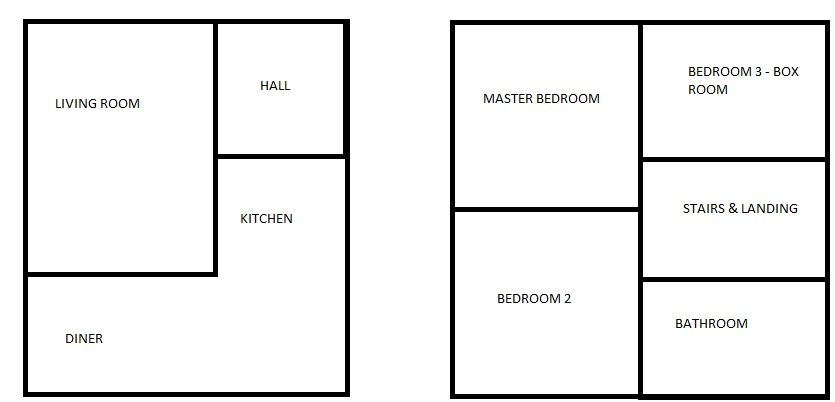- Joined
- 2 Feb 2014
- Messages
- 412
- Reaction score
- 2
- Country

I'm just wondering why one radiator in our house would keep air locking & requires bleeding much more than any other. We have 9 radiators in the house but the one in the 3rd bedroom is terrible. The others are fine but this one keeps air locking.
While i'm on the topic of radiators, if you pressurised the system & had to bleed them all in sequence, what sequence would you do mine in?
The layout of our house is as the pic shows:

Downstairs on left
Upstairs on right
The combi boiler is located in bedroom 2 on the wall that separates it (bedroom 2) & the bathroom.
Someone told me you do nearest first working to the furthest, but it's debatable whether bedroom 2 or the bathroom is nearest as the bathroom one is also quite close. I've been doing....
bedroom2
master bedroom
bedroom 3
Hall
Living room (the one closest to the diner)
Diner
Kitchen
Living room (the one up against the window which would be at the top of the photo)
bathroom
I'm sure i have that sequence wrong, but how wrong? Very probably lol.
While i'm on the topic of radiators, if you pressurised the system & had to bleed them all in sequence, what sequence would you do mine in?
The layout of our house is as the pic shows:

Downstairs on left
Upstairs on right
The combi boiler is located in bedroom 2 on the wall that separates it (bedroom 2) & the bathroom.
Someone told me you do nearest first working to the furthest, but it's debatable whether bedroom 2 or the bathroom is nearest as the bathroom one is also quite close. I've been doing....
bedroom2
master bedroom
bedroom 3
Hall
Living room (the one closest to the diner)
Diner
Kitchen
Living room (the one up against the window which would be at the top of the photo)
bathroom
I'm sure i have that sequence wrong, but how wrong? Very probably lol.
